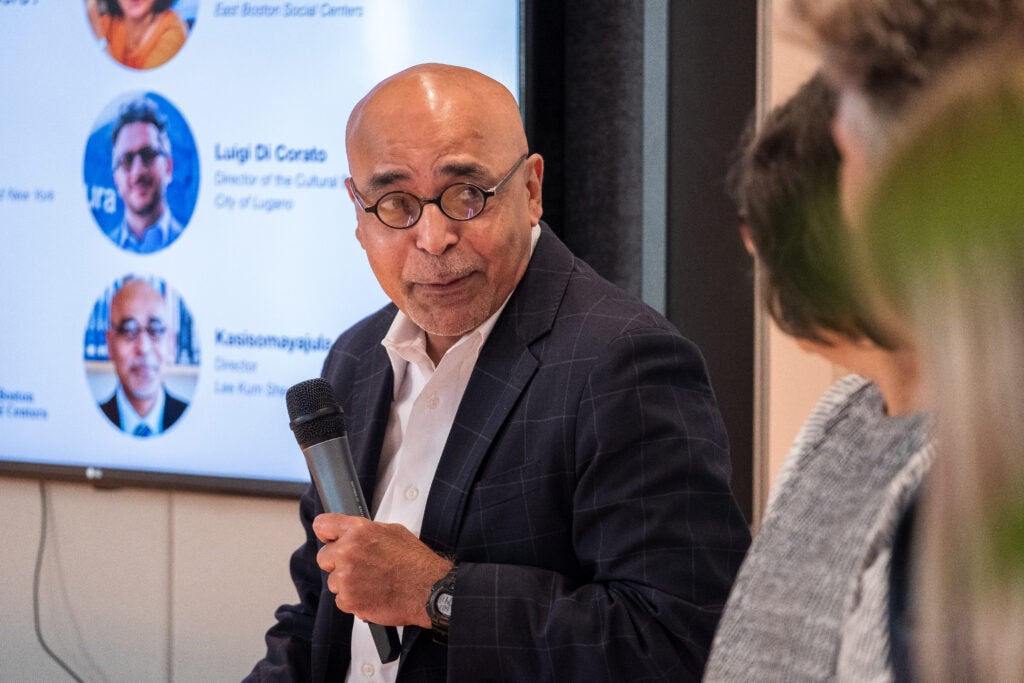 On June 1st, Center Director Dr. K. “Vish” Viswanath served as one of three panelists speaking at “Arts as Medicine: Where do we go from here?”, an event hosted by Swissnex in Boston in collaboration with the IBSA Foundation for Scientific Research, based in Lugano, Switzerland. This event explored the question of how the arts can be used to promote good health, prevent disease, and manage health conditions. Other panelists included Dr. Krina Patel, Director of Community Joy at the East Boston Social Centers, and Luigi Di Corato, Director of the Cultural Division of the City of Lugano, Switzerland. The event was co-organized by Center Postdoctoral Fellow Dr. Laura Marciano. Dr. Silvia Misiti, director of the IBSA Foundation, and Justin Pasquariello, executive director of the East Boston Social Centers, gave the opening remarks by presenting their ongoing activities related to arts and health.
On June 1st, Center Director Dr. K. “Vish” Viswanath served as one of three panelists speaking at “Arts as Medicine: Where do we go from here?”, an event hosted by Swissnex in Boston in collaboration with the IBSA Foundation for Scientific Research, based in Lugano, Switzerland. This event explored the question of how the arts can be used to promote good health, prevent disease, and manage health conditions. Other panelists included Dr. Krina Patel, Director of Community Joy at the East Boston Social Centers, and Luigi Di Corato, Director of the Cultural Division of the City of Lugano, Switzerland. The event was co-organized by Center Postdoctoral Fellow Dr. Laura Marciano. Dr. Silvia Misiti, director of the IBSA Foundation, and Justin Pasquariello, executive director of the East Boston Social Centers, gave the opening remarks by presenting their ongoing activities related to arts and health.
Dr. Viswanath began the discussion by defining health. “Health is not an absence of disease, it is complete wellbeing—mental, physical, and social.” He explained that studies show that engaging in and consuming art has an impact on a variety of health outcomes. “People are increasingly recognizing that,” he stated. “Art is a way to bring everyone together.”
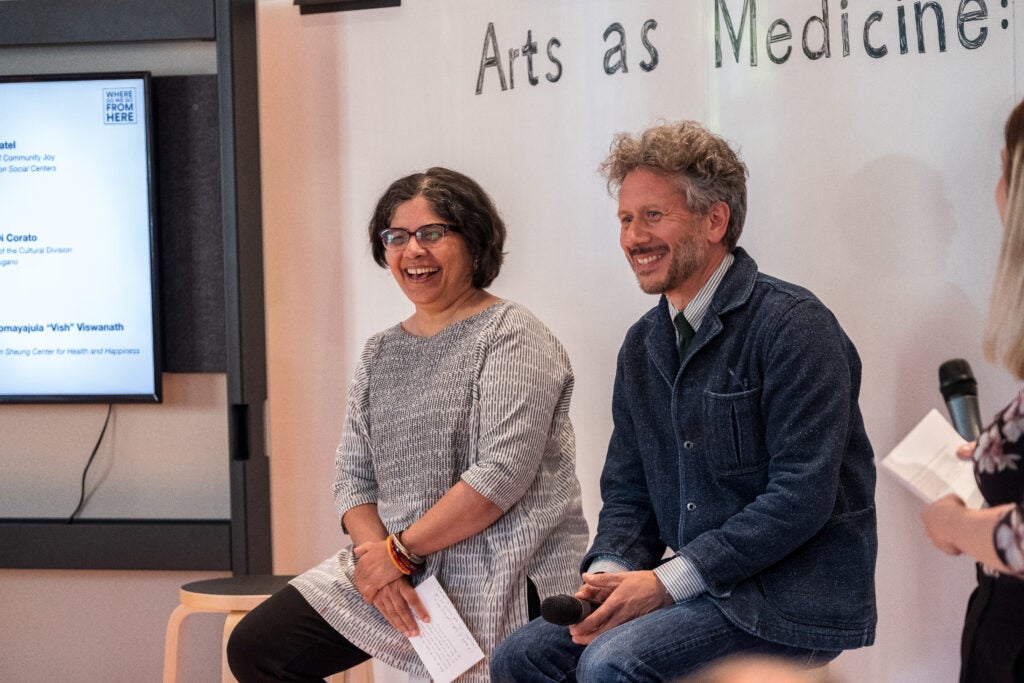 At this point, Dr. Krina Patel shared some definitions of her own. “Joy is the art of composing a life,” she stated. “When we talk about community joy, we’re talking about a sustained state of contentment and connection.” She discussed a year spent reviewing literature in positive psychology, and an ongoing Boston citywide survey on community joy, for which she anticipates results soon.
At this point, Dr. Krina Patel shared some definitions of her own. “Joy is the art of composing a life,” she stated. “When we talk about community joy, we’re talking about a sustained state of contentment and connection.” She discussed a year spent reviewing literature in positive psychology, and an ongoing Boston citywide survey on community joy, for which she anticipates results soon.
Luigi Di Corato then discussed the meaning of “culture”, defining it as “something that has a social impact, is related to quality of life, and helps us to grow a healthy community.” The city of Lugano recently spent $260 million to build a new cultural center, and Di Corato believes that they are now in position to “change the paradigm, to show that culture can be used in a better way.”
Dr. Viswanath added that engaging in artistic programs can improve physical health in both children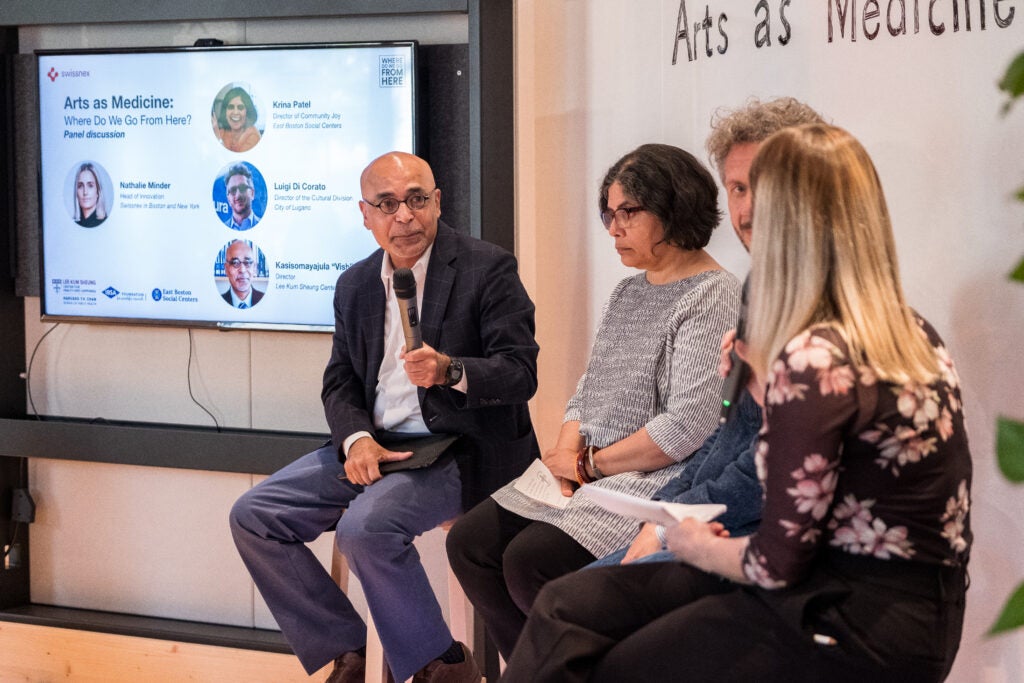 and adults. “A sense of belonging to a community is critical to social well-being, while feeling alienated leads to a variety of unhealthy outcomes such as substance abuse. Sustained engagement in the community through artistic programs allows people to feel that they belong, and that has an impact on a variety of well-being outcomes. Happiness isn’t an individual thing, it’s a communal thing. And that’s where we can make a huge difference through policies and practices.” He argued that the burden of happiness should be shifted from the individual to policymakers, cultural centers, and community-based organizations. Spaces need to be built for community activities, and they need to be built with equity in mind.
and adults. “A sense of belonging to a community is critical to social well-being, while feeling alienated leads to a variety of unhealthy outcomes such as substance abuse. Sustained engagement in the community through artistic programs allows people to feel that they belong, and that has an impact on a variety of well-being outcomes. Happiness isn’t an individual thing, it’s a communal thing. And that’s where we can make a huge difference through policies and practices.” He argued that the burden of happiness should be shifted from the individual to policymakers, cultural centers, and community-based organizations. Spaces need to be built for community activities, and they need to be built with equity in mind.
“Everything we know about population health shows that there are extreme disparities in health based on socioeconomic status,” stated Dr. Viswanath. “Where are the libraries and museums located? Who goes to them? What schools have good programs for art? The rich ones, the wealthy neighborhoods. Access to arts and impacts on health differ across class, race, and geography. If you solve the access issue, people from a lower socioeconomic class benefit much more. Equity is central to this issue.”
Dr. Viswanath concluded by declaring that he was dedicating the Center for Health and Happiness to translating research on well-being to the public. “We need to get the information out there, bring those promising practices into the research setting to evaluate them, then feed that data back to the communities.”
Written by Ayla Fudala, Center Communications Coordinator
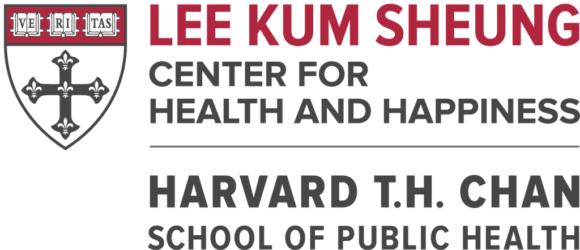
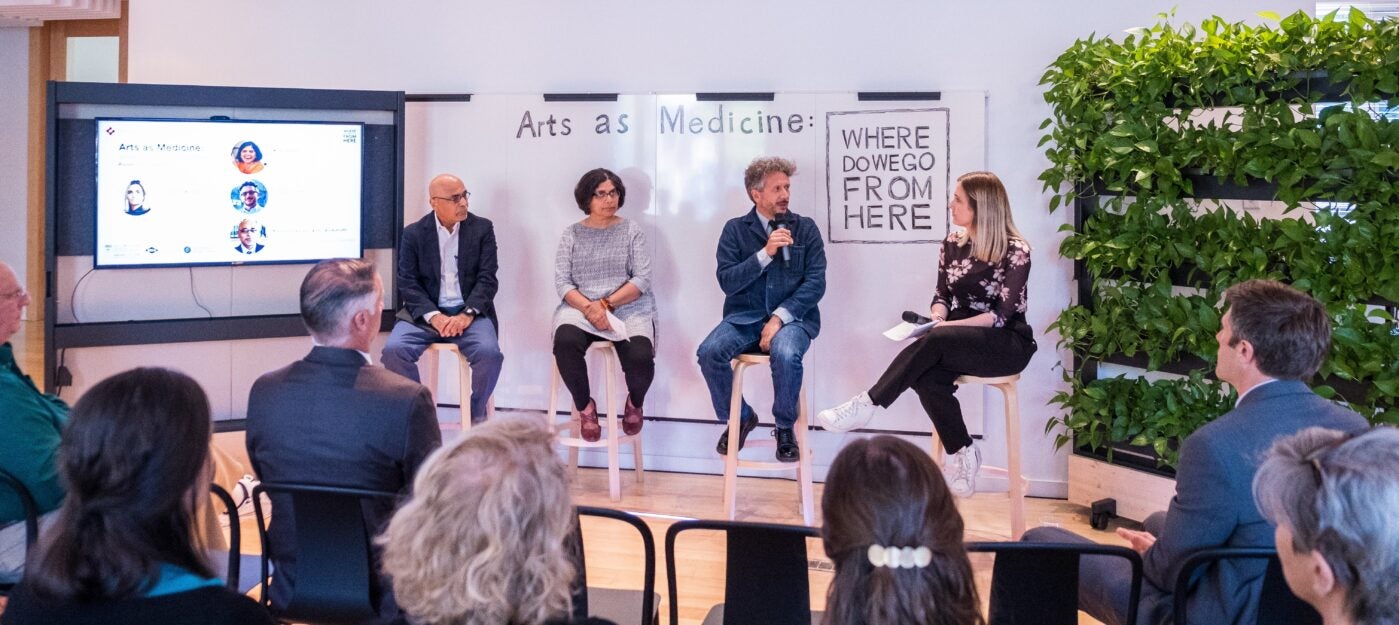
You must be logged in to post a comment.